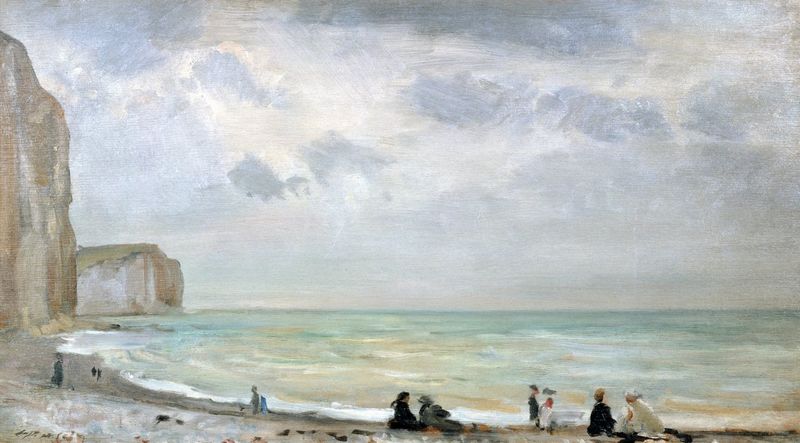
The boy who would become our Dietrich Fischer-Dieskau was born in Berlin on May 28, 1925. And I say our without any intention of disrespecting him, rather it is the opposite. Fischer-Dieskau is a cultural heritage of Lied, just as many other things, material and immaterial, are a culture heritage of humanity.
Just consider how the genre would have evolved during the second half of the 20th century – interpretation, reception, and composition – without him. Unable to say, isn't it? He is such a significant figure, that it is difficult to look past him. And in my opinion, this is the precise point at which his importance lies. Why? Not because he was a great singer (of Lied, but also of opera and oratorio); not because he did a great job to spread the genre, also with his books and his conferences; not because he devoted himself to claiming half-forgotten Lieder (yes, also those of Beethoven or those of Wolf); not because, at the same time, he was a constant performer of contemporary music, often written for him. I would say he is extremely relevant because his work in the service of Lied was so immense, even reaching people who did not even know what Lied was, that we cannot imagine how things would have gone without it.
He usually appears on Liederabend, of course. Perhaps some readers are remembering that I mentioned my reluctance – which, on the other hand, is irrelevant – but, even so, we listen to him regularly. So far, we heard him perform Schubert, Schumann, Mahler, Wolf, Brahms, Beethoven, Mendelssohn, Loewe, Reger, Eisler, Britten, Ives and Ravel. A selection that, like all those you will find here, is biased, but still has some representativity. This week, as a small tribute to his vast repertoire, we will add another composer to the list: Samuel Barber.
Permit me tot share a personal memory: a winter stormy day on a beach in the Atlantic. I stop to listen to the sea. And I notice there's another loud, rhythmic sound in addition to the waves breaking. These are the pebbles as the water pulls them from the beach and pushes them back when it returns. A beautiful and relaxing sound that I have not heard again, because the Mediterranean waves do not drag the pebbles with the same force.
The sound of the pebbles being dragged by the waves was not at all pleasant to the English poet Matthew Arnold (1822–1888), who in his poem Dover Beach describes it as “the eternal note of sadness”. Until then, the verses spoke of a paceful night scape, and from there they become a pessimistic analysis of the world; the darkness that prevails in it can only be endured by loving and being loved.
Samuel Barber composed his song Dover Beach, Op. 3 in 1931, when he was twenty-one and was enrolled at the conservatory. It is a piece for baritone and string quartet that, despite being a work of youth, he always loved,;aware, moreover, that its message is sadly timeless. In 1968, Dietrich Fischer-Dieskau recorded it with the Juilliard Quartet, and this is the version we will hear today. Although it is a longer work than the typical we listen to on Liederabend, I believe it is worth making an exception.
Do you think there is a heaven of musicians like those drawn by Otto Böhler? (In case you don't know him, I'll talk about him another time.) If that is the case, Fischer-Dieskau must be there celebrating his 100th anniversary with all the composers he loved.
The sea is calm to-night,
The tide is full, the moon lies fair
Upon the straights; -- on the French coast the light
Gleams and is gone; the cliffs of England stand,
Glimmering and vast, out in the tranquil bay.
Come to the window, sweet is the night-air!
Only, from the long line of spray
Where the sea meets the moon-blanch'd land,
Listen! you hear the grating roar
Of pebbles which the waves draw back, and fling,
At their return, up the high strand,
Begin, and cease, and then again begin,
With tremulous cadence slow, and bring
The eternal note of sadness in.
Sophocles long ago
Heard it on the Ægean, and it brought
Into his mind the turbid ebb and flow
Of human misery; we
Find also in the sound a thought,
Hearing it by this distant northern sea.
The Sea of Faith
Was once, too, at the full, and round earth's shore
Lay like the folds of a bright girdle furl'd.
But now I only hear
Its melancholy, long, withdrawing roar,
Retreating, to the breath
Of the night-wind, down the vast edges drear
And naked shingles of the world.
Ah, love, let us be true
To one another! for the world, which seems
To lie before us like a land of dreams,
So various, so beautiful, so new,
Hath really neither joy, nor love, nor light,
Nor certitude, nor peace, nor help for pain;
And we are here as on a darkling plain
Swept with confused alarms of struggle and flight,
Where ignorant armies clash by night.l














Comments powered by CComment